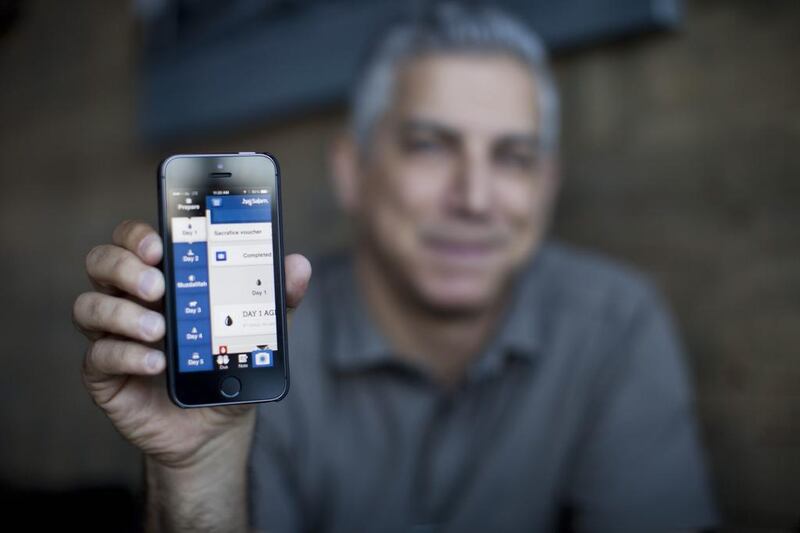Ali Dabaja has never been on Haj, but he and his team at Hajjnet have built one of the most informative mobile applications about the pilgrimage to Saudi Arabia that pulls in more than 24 million people a year.
Hajj Salam provides a step-by-step guide for pilgrims from the practical to religious rites. Need an ATM to buy an animal to slaughter? Hajj Salam will pinpoint one for you. Forgot how many times you have circled the Ka’aba? Hajj Salam uses your phone’s GPS to count for you.
Housed in Dubai Silicon Oasis, the Hajjnet team have also created a second app, Umrah Salam, for the pilgrimage that can be taken at any point in the year.
The idea for Hajj Salam came after Mr Dabaja visited a friend who had performed Haj for the second year in a row.
“We started talking about his challenges and obstacles and what was different in those two consecutive years. I thought about projecting myself into it, what it would take for me to do this, both in terms of performing the rituals properly, as well as planning it.
“I thought of every aspect because it is an overwhelming sense of responsibility,” says Mr Dabaja, the founder and chief executive of Hajjnet.
Since the launch on Apple’s iTunes store in August, Hajj Salam has amassed 40,000 downloads.
Now Mr Dabaja’s team is developing the app for the Android platform that will be launched within the next few months and an Arabic version of the app, which should be ready this month.
Islamic mobile apps are big business; from Quran, prayer times and Qibla finders, Muslims are turning to their smartphones for information and guidance. Samsung has even begun preloading some of its Middle East phones with Islamic apps.
Despite the success of Hajjnet, Mr Dabaja, who has spent most of his career in the banking industry, says he was initially apprehensive about setting up a company to create apps for Muslims.
“I didn’t feel that comfortable leading a company which had a religious aspect to it,” says the American citizen, originally of Lebanese descent. He moved to Dubai in 2005 to continue in banking and also embarked on some consultancy work. The idea for Hajjnet began in 2009.
But launching his idea was not an easy process. He had previously set up a couple of companies in the United States, but had little experience in the Middle East.
“Setting up a company in the US is very, very easy, you just do it online. Here, you have to spend a lot of time at the bank doing different things. Setting up a company is a process, tied to the work visa. There is a whole different aspect to it, but I didn’t expect it to be like the US,” says Mr Dabaja.
It took the businessman about 18 months to establish the company and Hajjnet’s first round of funding came from friends and family.
With no experience in the technology industry, Mr Dabaja embarked on recruiting the necessary talent to build the app and brought on board a scholar Shaykh Muhammad Alshareef, who provided the religious context. Shaykh Muhammad, who has a degree in Islamic Law from the Islamic University of Medina in Saudi Arabia, has performed Haj 20 or so times. He is a renowned expert on the subject and met Mr Dabaja at the World Hajj and Umrah Convention in 2012 in London where he was a speaker.
Another vital member of the development of the Hajj Salam is Mathias Eichelberger, who until recently was the head of air and ground at the travel website Expedia. And the app itself, which is free to download, along with Hajjnet has already caught the eye of potential investors.
“Our focus is not on making money right now. The focus is on the use and driving volume of downloads,” says Mr Dabaja. “We want to have the maximum number of people and figure out what they like and don’t like and continue to develop the software.”
thamid@thenational.ae





